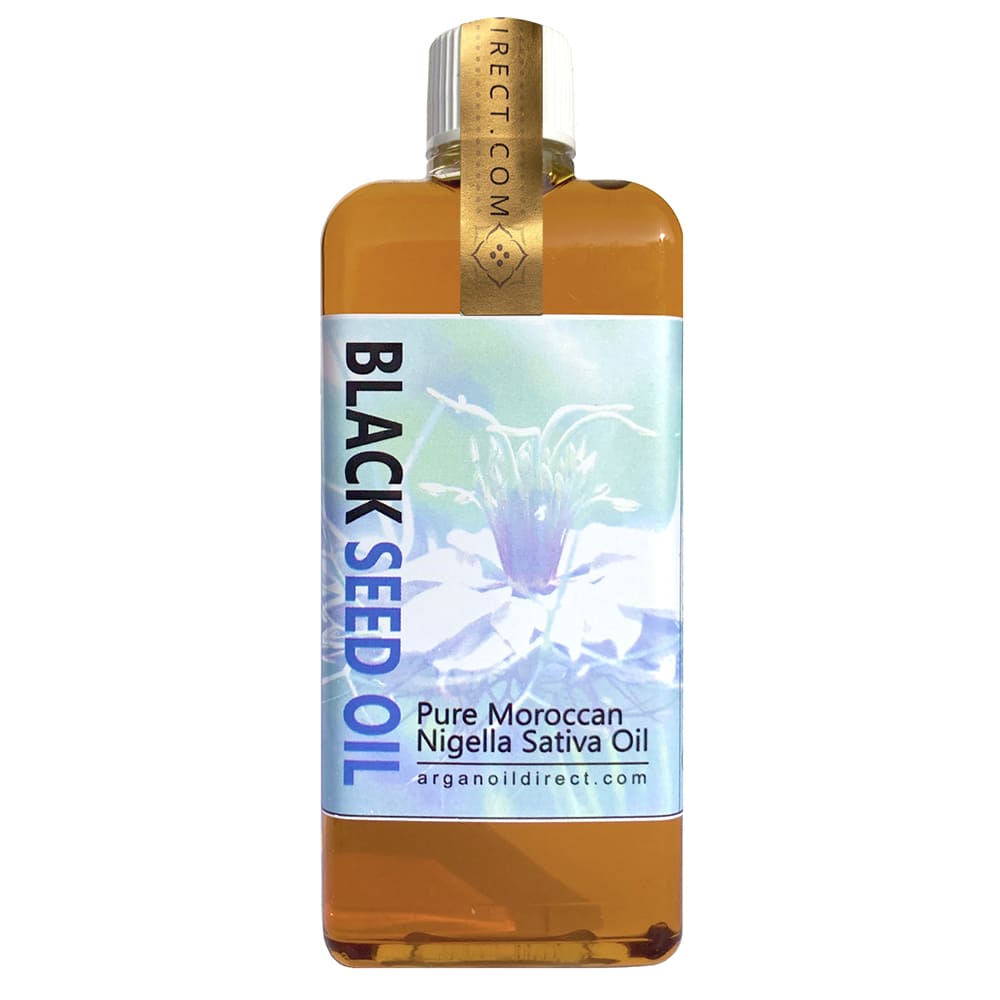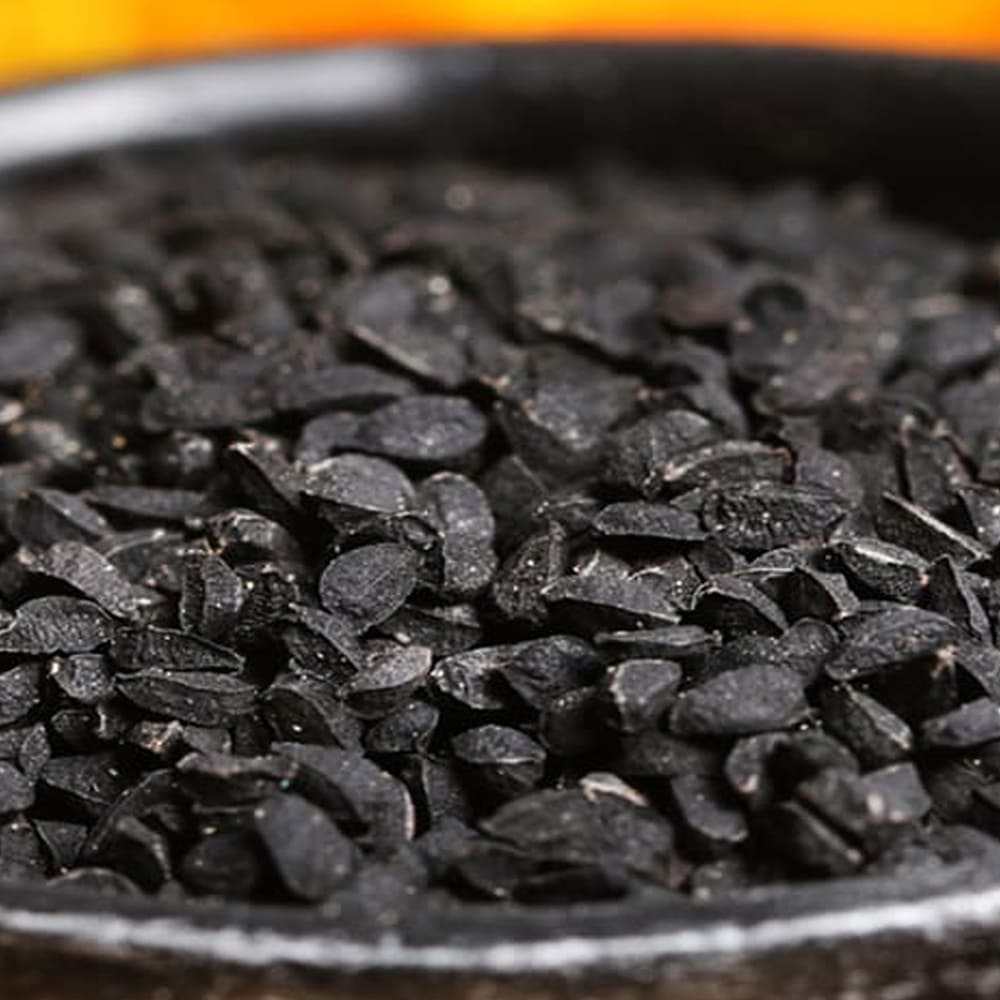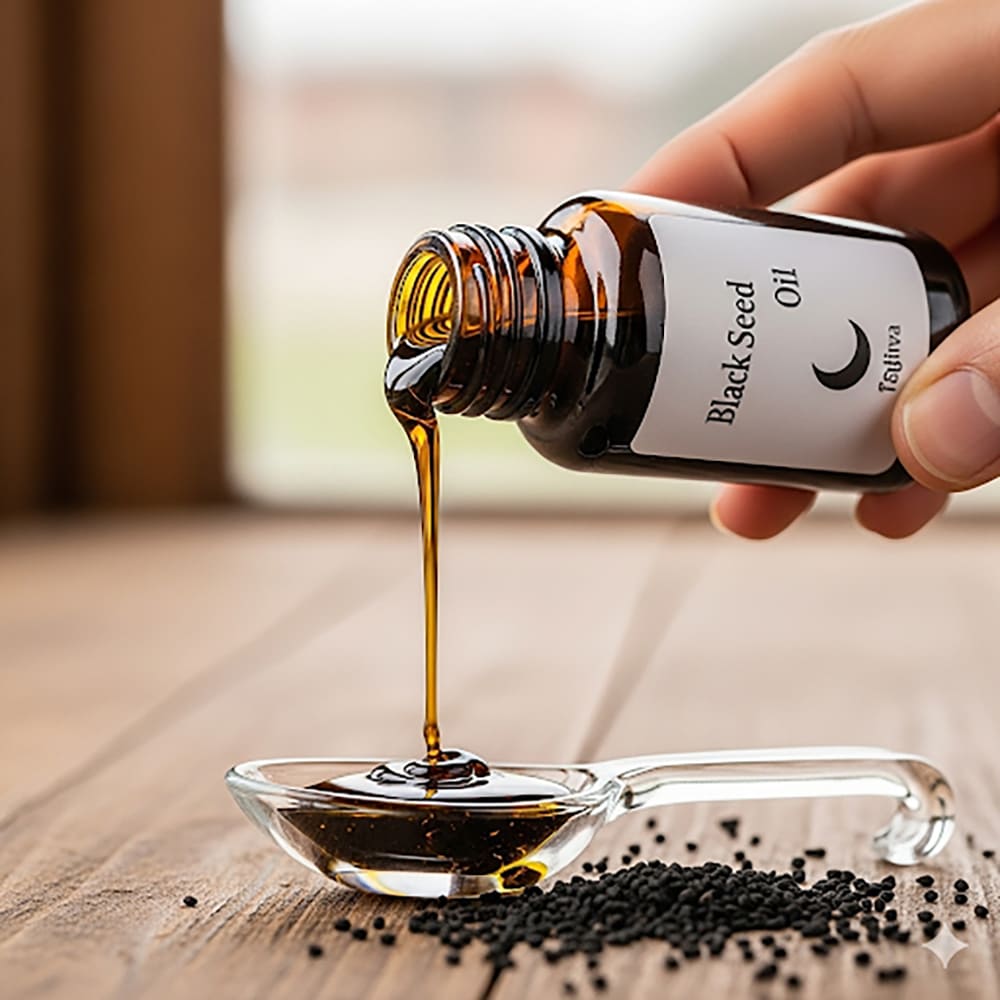Black Seed Oil is known by many names including black caraway, black cumin, nigella sativa oil and kalonji.
The oil is cold-pressed from the black seeds of the Nigella sativa plant. It has a dark orange color and an intense, bitter flavor and aroma like burnt cumin.
The most important active compound in Black Seed Oil is Thymoquinone.
- Anti-inflammatory: Black seed oil can reduce inflammation by modulating inflammatory mediators like prostaglandins and leukotrienes. This makes it a popular topical and internal remedy for conditions such as arthritis, eczema, and other inflammatory skin issues.
- Anti-histamine: A key component of black seed oil, nigellone, is thought to help inhibit the release of histamine from mast cells. This property is why it is traditionally used to help manage symptoms of allergies like hay fever and asthma.
- Immunomodulatory: It has been shown to help regulate the immune system. It can increase the activity of certain immune cells while also inhibiting excessive inflammatory responses, which is beneficial for both fighting infections and managing autoimmune conditions.
- Antimicrobial: Black seed oil has been shown to have antibacterial, antifungal, and antiparasitic properties.
- Antidiabetic: Studies suggest that black seed oil can help lower blood sugar levels and improve insulin resistance, making it a potential complementary therapy for managing type 2 diabetes.
- Hepatoprotective and Nephroprotective: Its antioxidant properties are believed to help protect the liver and kidneys from damage caused by toxins.
- Dual antioxidant and kinase activity inhibitor on leucine-rich repeat kinase-2 (LRRK2) substrates, which are linked to a common cause of familial Parkinson’s disease
Based on centuries of use in traditional medicine, black seed oil (also known as Nigella sativa) has been used for a wide range of ailments and for general health.
Its traditional uses, particularly in Middle Eastern, Indian, and other cultures, include:
- Immune Support: It was used to strengthen the body’s natural defenses and combat various illnesses.
- Respiratory Health: It was a traditional remedy for conditions affecting the respiratory system, such as asthma, coughs, and bronchitis.
- Digestive Issues: It was used to treat a variety of digestive tract problems.
- Pain and Inflammation: It was applied to reduce pain and swelling, making it a traditional remedy for conditions like joint pain and headaches.
- Skin and Hair: Black seed oil was applied topically for skin conditions like acne, eczema, and psoriasis, as well as to improve hair health and combat hair loss.
- Overall Well-being: It was also used as a general tonic to improve overall health and vitality.
Note: There is no firmly established dosage, as most studies are small and more research is needed.
Commonly used doses mentioned in sources include:
- Oil: 1–2 teaspoons (5-10 ml) per day. The oil is often mixed with honey or lemon juice to improve the taste.
Note:
- Surgery & Bleeding Disorders: Due to its potential to slow blood clotting, you should stop taking black seed oil at least two weeks before scheduled surgery.
- Pregnancy and Breastfeeding: Black seed oil is not recommended for pregnant women in amounts greater than those found in food.
- Low Blood Pressure: Black Seed Oil may lower blood pressure.
- Kidney or Liver Issues: If you have advanced kidney or liver disease, you should avoid or discuss black seed oil with a doctor.
Possible Drug Interactions:
- Anticoagulants/Blood Thinners
- Diabetes Medications
- High Blood Pressure Medications
- Immunosuppressants
- Sedatives
- Diuretics
- Serotonergic Drugs
Disclaimer: This information is for educational purposes and should not be considered medical advice. It is essential to consult with a healthcare professional before taking black seed oil, if you have pre-existing health conditions, are pregnant or breastfeeding, or are taking any medications.








Reviews
There are no reviews yet.